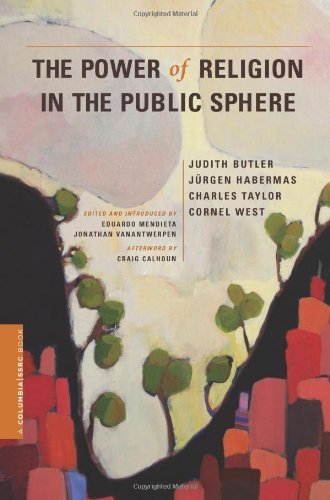What do you think?
Rate this book


Paperback
First published February 11, 2011
(Judith Butler) ... everyone has the right of belonging... To cohabit the earth is prior to any possible community or nation or neighbourhood. We might not choose where to live, and who to live by, but we cannot choose with whom to cohabit the earth.
(Cornell West) But there is a prophetic way of being in the world [from the Jewish tradition], a call for help, grounded in the cries of an oppressed people that warrants attention, and, in fact, to be human is to love the orphan, the widow, the stranger, to treat that non-Jewish other with dignity, with loving kindness.